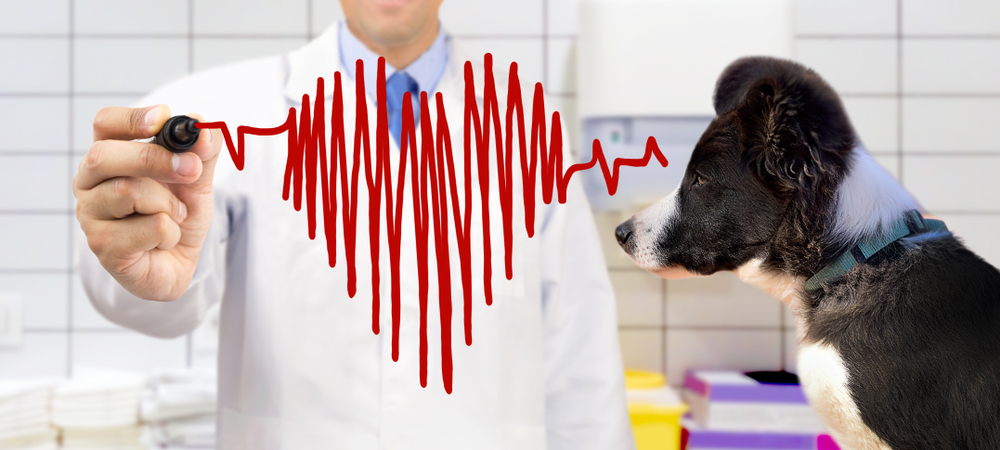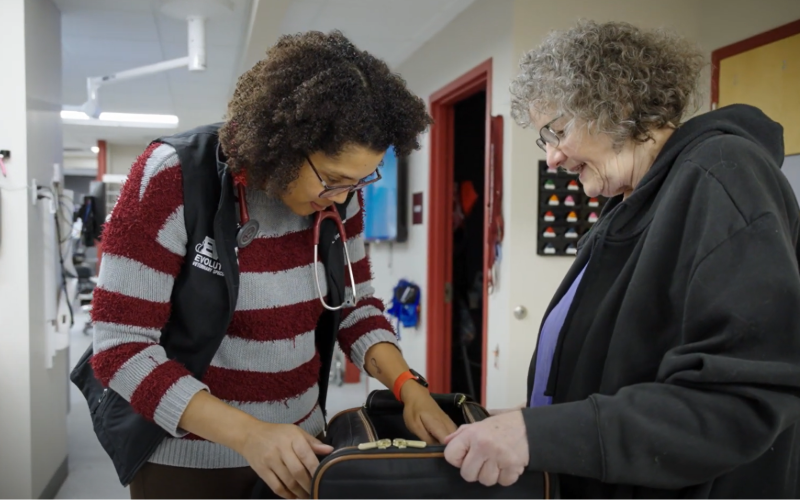Discovering the Necessary Providers Offered by a Vet Cardiologist: Comprehending Ultrasound and CT Check Methods
Veterinary cardiologists play an essential role in the wellness of animals by diagnosing and treating various heart problems. They make use of advanced imaging techniques, such as cardiac ultrasound and CT scans, to supply precise assessments. Each technique has its distinct benefits and applications. Recognizing these strategies is important for pet proprietors seeking the most effective care for their companions. What variables should animal proprietors take into consideration when choosing in between these analysis tools?

The Role of Vet Cardiologists in Pet Dog Healthcare
Veterinary cardiologists play a vital duty in the healthcare of family pets, focusing especially on detecting and treating heart-related conditions. They possess specialized training that allows them to interpret intricate analysis examinations and determine numerous cardiovascular issues. These experts use sophisticated strategies, such as echocardiography and electrocardiography, to examine heart function and structure accurately.Veterinary cardiologists also create tailored therapy strategies that may include medicines, way of living alterations, and, sometimes, surgical treatments. Their proficiency reaches educating pet dog proprietors concerning heart wellness, emphasizing the importance of normal exams and very early detection of possible problems. Partnership with general vets is essential, as it ensures detailed take care of pet dogs with believed cardiac problems. By supplying specialized services, veterinary cardiologists substantially boost the top quality of life for pets and offer comfort for their owners, strengthening the significance of heart health in overall animal wellness.
Typical Cardiac Problems in Animals
Typical cardiac concerns in animals can significantly impact their health and top quality of life. Heart murmurs, various types of cardiomyopathy, and hereditary heart issues are among one of the most common problems that veterinarians experience. Board Certified Veterinary Cardiologist. Recognizing these concerns is necessary for animal owners to ensure timely diagnosis and appropriate therapy
Heart Murmurs in Pets
Although heart whisperings can be a resource of worry for pet proprietors, they are not always a sign of significant health problems. A heart murmur is an uncommon noise generated by unstable blood flow within the heart. In pets, these whisperings can be brought on by numerous aspects, consisting of hereditary heart issues, shutoff problems, or perhaps tension throughout evaluations. Many pets with heart whisperings lead normal lives without substantial health and wellness impacts. To determine the underlying cause, vet cardiologists typically use analysis methods such as echocardiograms and Doppler ultrasounds. Early discovery and assessment are important, as they might assist handle any type of prospective heart problems properly. Pet dog proprietors are motivated to consult their veterinarian for an extensive examination if a heart murmur is spotted.
Cardiomyopathy Types Explained
Cardiomyopathy encompasses a team of conditions influencing the heart muscular tissue, leading to jeopardized cardiac function in pet dogs. One of the most usual types include dilated cardiomyopathy (DCM), hypertrophic cardiomyopathy (HCM), and restrictive cardiomyopathy (RCM) DCM mostly impacts pets, causing the heart to compromise and enlarge, which lessens its ability to pump blood effectively. In contrast, HCM is a lot more common in felines, defined by the thickening of the heart walls, often resulting in blocked blood flow. RCM, though less usual, occurs when the heart muscle comes to be inflexible, limiting its ability to loaded with blood. Each kind provides one-of-a-kind challenges in medical diagnosis and treatment, requiring specialized vet cardiological analysis to assure peak management and treatment for affected pets.
Genetic Heart Defects
Congenital heart flaws stand for a substantial category of heart concerns in animals, distinctive from acquired conditions such as cardiomyopathy - Board Certified Veterinary Cardiologist. These issues are architectural problems existing at birth, affecting the heart's typical feature. Usual types consist of license ductus arteriosus, ventricular septal flaws, and pulmonic stenosis. Symptoms may vary commonly, varying from light to serious, and can consist of exercise intolerance, coughing, and difficulty breathing. Early medical diagnosis through innovative imaging techniques like ultrasound is necessary for reliable administration. Vet cardiologists play an important function in identifying these conditions and recommending proper treatment alternatives, which might include clinical management or surgical treatment. Recognizing hereditary heart defects enables better end results and improved lifestyle for affected pets
Comprehending Heart Ultrasound: Just How It Works
A significant variety of vet methods now make use of heart ultrasound as a necessary analysis device for reviewing heart health and wellness in pets. This non-invasive strategy uses high-frequency acoustic waves to produce pictures of the heart's structure and feature. During the procedure, a veterinary technician applies a gel to the animal's chest and makes use of a transducer to emit ultrasound waves. These waves bounce off the heart and bordering structures, creating real-time photos on a monitor.Veterinarians can assess various facets of cardiac health, consisting of chamber dimension, wall surface activity, and shutoff feature. Furthermore, cardiac ultrasound enables for the detection of irregularities such as fluid build-up and hereditary heart issues. This technique is crucial for detecting problems that might not show up through conventional radiographs. By supplying thorough details concerning the heart's composition and performance, heart ultrasound help in developing reliable therapy plans for pets experiencing from heart condition.
The Significance of CT Scans in Diagnosing Heart Conditions
How do CT scans boost the medical diagnosis of heart conditions in veterinary medication? CT scans provide thorough cross-sectional photos of the heart and surrounding structures, allowing vets to visualize complicated anatomical connections. This imaging method is especially useful in identifying genetic heart flaws, cardiac tumors, and problems in blood vessels. By utilizing sophisticated imaging algorithms, CT scans can evaluate heart chamber dimensions and feature, using a detailed view that may be difficult to attain with standard methods.Additionally, CT angiography can visualize blood circulation and determine locations of stenosis or blockage, which is crucial for preparing potential treatments. The rate and accuracy of CT scans likewise help with fast diagnoses, essential in emergency situations. Eventually, the unification of CT checks into vet cardiology considerably improves the accuracy of medical diagnoses, making it possible for targeted therapy strategies and enhancing client outcomes for animals dealing with heart disease.
Comparing Ultrasound and CT Check Techniques
While both ultrasound and CT scans are very useful tools in vet cardiology, they use distinctive advantages and restrictions that affect their usage in detecting heart disease. Ultrasound, or echocardiography, supplies real-time imaging of the heart's framework and function, permitting vets to analyze heart chambers, shutoffs, and blood flow. It is particularly reliable for examining conditions like heart disease and cardiomyopathy. Nevertheless, ultrasound might be limited in visualizing particular physiological structures as a result of client size or obesity.In comparison, CT checks offer comprehensive cross-sectional pictures of the heart and bordering cells, making them ideal for identifying architectural irregularities, lumps, or vascular issues. CT scans give detailed understandings, they need sedation and may involve radiation exposure. Eventually, the selection in between ultrasound and CT scans depends upon the details scientific circumstance, the client's condition, and the info required for an accurate medical diagnosis.
Treatment Alternatives Offered Through Veterinary Cardiology
Veterinary cardiology uses a variety of treatment alternatives tailored to deal with numerous heart problems in pets. Therapy strategies commonly start with lifestyle adjustments, including diet regimen changes and workout changes, intended at improving total heart health and wellness. Drugs play a vital role, with cardiologists recommending medicines such as diuretics, beta-blockers, and ACE preventions to boost and handle signs cardiac function.In more severe situations, interventional procedures, such as balloon valvuloplasty or stent positioning, might be necessary to relieve clogs or boost blood flow. For certain genetic heart defects, surgical choices may be discovered to remedy structural issues. Additionally, ongoing tracking and follow-up treatment are vital elements of a complete therapy plan, enabling timely modifications based on the pet's feedback to therapy. Overall, veterinary cardiology focuses on offering efficient, individualized treatment to optimize the health and wellness and health of animal clients with heart disease.
Exactly how to Prepare Your Pet Dog for a Cardiac Assessment
Preparing a pet for a cardiac examination is vital to assure exact outcomes and a smooth procedure. Proprietors must initially schedule the visit with the veterinary cardiologist and talk about any type of particular requirements or issues. It is recommended to hold back food for at the very least 12 hours before the examination, as this helps enhance imaging high quality during treatments like ultrasound or CT scans.Additionally, maintaining a knockout post a tranquil setting on the day of the appointment can help in reducing the pet's anxiousness. It is valuable to bring along any type of relevant medical documents, consisting of previous examinations and drugs (CT Scans see post For Dogs). Proprietors ought to additionally make sure that their pet is comfortable and leashed during transportation to the facility. Familiarizing themselves with the assessment process can minimize worries and help in asking educated concerns throughout the assessment. By adhering to these steps, proprietors can contribute substantially to the effectiveness of the heart evaluation
Often Asked Questions
For how long Does a Cardiac Ultrasound or CT Check Take?
The period of a cardiac ultrasound commonly ranges from 30 to 60 mins, while a CT check may take around 15 to 30 minutes. Elements such as the person's condition can influence these time price quotes.

Are There Any Dangers Connected With These Analysis Treatments?

Can I Stick With My Family Pet During the Procedure?
The veterinary center's plan normally determines whether family pet owners can remain during treatments. While some centers motivate proprietor existence for convenience, others may need separation to guarantee safety and security and excellent problems for diagnostic imaging.
Just how Much Do These Analysis Tests Typically Price?
The expenses of diagnostic examinations, such as ultrasound and CT scans, typically vary based upon location and center. Usually, prices vary from a few hundred to over a thousand bucks, showing the intricacy and innovation involved.
What Is the Recuperation Process After a Heart Assessment?
The recuperation process after a heart assessment entails keeping an eye on the pet for any kind of immediate responses, guaranteeing convenience, and limiting learn the facts here now exercise. Veterinarians normally offer post-evaluation guidelines to direct pet dog owners throughout this essential healing duration. Heart murmurs, numerous types of cardiomyopathy, and hereditary heart issues are among the most common problems that veterinarians run into. A heart murmur is an uncommon sound created by stormy blood flow within the heart. Cardiomyopathy includes a team of diseases influencing the heart muscular tissue, leading to endangered cardiac function in pet dogs. Congenital heart problems stand for a substantial category of cardiac problems in family pets, distinctive from acquired conditions such as cardiomyopathy. Ultrasound, or echocardiography, offers real-time imaging of the heart's framework and feature, permitting vets to assess heart chambers, valves, and blood flow.
Comments on “How a Board Certified Veterinary Cardiologist Treats Complex Heart Conditions in Pets}”